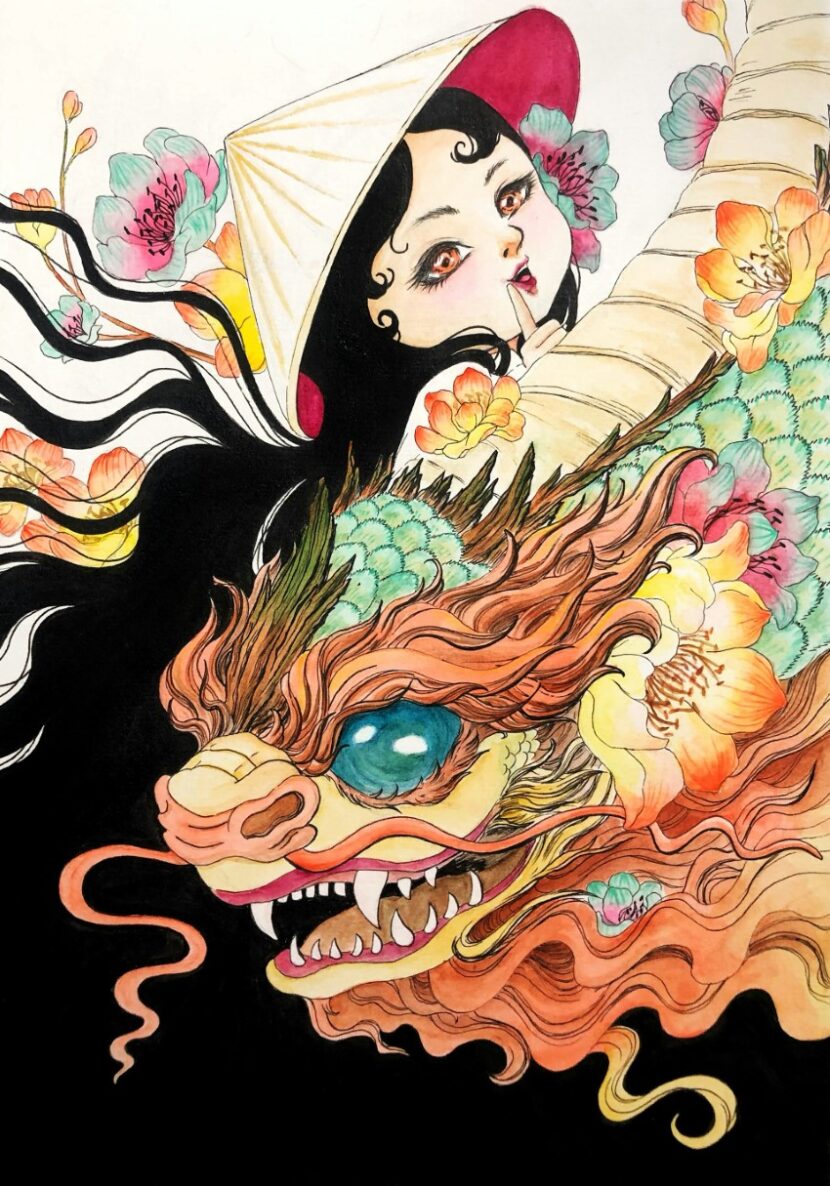In the kaleidoscope of human creativity, the brushwork of Asian painters stands as a testament to time, culture, and the intricate dance of tradition and innovation. Whether you’re an art aficionado or a traveler seeking a deeper understanding of a diverse and ancient region’s soul, Asian paintings offer an aesthetic and historical safari that compels us to slow down and pay attention.
Conjuring visions of landscapes shrouded in mist, regal portraits that tell stories without words, and the delicate artistry of ink-on-silk, Asian paintings are a tapestry through which we glimpse the multifaceted facets of the continent. From the vibrant hues of the Indian subcontinent to the subtle brushstrokes of Japanese watercolor, each form of Asian art encapsulates a specific ethos, philosophical depth, and emotive quality that is as rich and layered as the centuries that have shaped them.
This post unfurls the scroll on the timeless appeal of Asian paintings, elucidating why they remain as relevant and resonant today as they did when the first brush met paper.
The Varied Canvas of Asian Art
Asian art is not a monolith but a mosaic of styles, periods, and cultural threads. The region’s art is as diverse and rich as its languages, landscapes, and culinary creations. The vibrant colors of Hindu temples and Bollywood sets in India, the graceful calligraphy and stark simplicity of Chinese ink art, the serene landscapes and noble Kabuki actors in Japanese art, and the opulent details found in the palaces and scrolls of Korea are all part of this immense tableau.

The Storied Past in Every Stroke
One of the most compelling aspects of Asian canvas art and paintings is the cultural and historical narrative woven within them. From the folk art of village life to the grandeur of imperial courts, each painting is a gestalt of the time within which it was created. The symbols, silhouettes, and stories within the art are bridges that connect us to past eras. They can reveal the spiritual musings of Zen Buddhism in the simplicity of Zen masters’ rock gardens or the solemnity of Confucian values through portraits and landscapes.
The Endless Charm of Technique and Material
In the domain of technique, Asian painters are revered for their mastery. Be it the fleeting finesse of Japanese Sumi-e or the heavily pigmented canvases of the Mughal school, each method reflects an intimate relationship between the artist and the medium. The use of high-quality paper, silk, and gold leaf further enhances the luxurious quality of the art. Techniques like ukiyo-e (floating world pictures), a genre of Japanese woodblock prints emphasize the ephemeral beauty of life, while the Goryeo Jangan (inlay technique) in Korean art creates a stunning visual effect.
Echoes of the Future in Asian Paintings
While Asian paintings are a trove of cultural heritage, they also resonate with modern and Western artists today who find inspiration in their styles and subjects. The world of contemporary art often finds itself reaching back to the Oriental roots that have given rise to a multitude of movements and experiments. From the Impressionists’ love for Japanese woodblocks to the modernists’ fascination with line and form found in calligraphy, the echoes of Asian paintings are clear and continuous.
The Quest for Authenticity
Investigating Asian art is a quest for authenticity, far beyond the ivory towers of academia. It is an experiential, sometimes visceral, quest that takes one inside temples, across rolling fields, and through the bustling markets of yesteryear. It demands we stop, observe, and appreciate the world through a different lens. And while the soft voice of a museum curator can guide us, it is the art itself that leads the way.
Asian paintings offer a lens through which to witness the enduring legacies of art, history, and cultural integration. They are invitations to travel through time, geography, and philosophy, all from the comfort of a gallery. Capturing the essence and spirit of a people, Asian art paintings not only belong to the past but continue to contribute to the future of art worldwide. It is a legacy that demands our admiration and appreciation.
